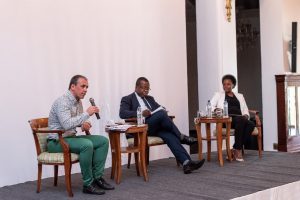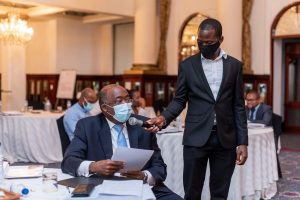Presentation of the draft report ‘Mozambique at a fork in the road: an institutional diagnostic’
The draft report of the Mozambique Institutional Diagnostic (MID) was presented at a policy engagement and dissemination event held on 4 November, organized together with the research programme Inclusive Growth in Mozambique (IGM). The event followed a hybrid format, gathering a limited number of participants in person (given current health and safety guidelines) in Hotel Polana, in Maputo, as well as participants joining online via the Zoom platform. It gathered policymakers, representatives of the private sector and civil society, legislative and judicial powers, and religious organizations.
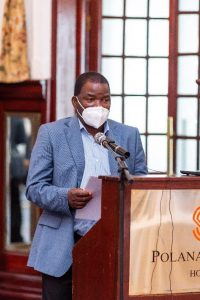
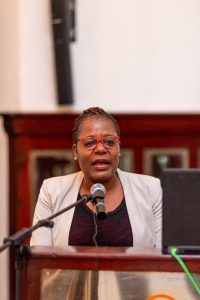
The draft report is the output of the MID study, a unique collaboration between various international research institutions and local high-level analysts launched on 12 June 2019. The objective of the overall EDI programme is to develop an ‘institutional diagnostic’ that enables policymakers to identify obstacles to sustainable and inclusive development and proposes institutional reforms to overcome them. The event aimed at presenting the complete draft report of the MID study and at collecting the opinions of different discussants, panellists and participants on the main conclusions.
The event started with welcoming words by Enilde Sarmento, National Director of Economic and Development Policies, Ministry of Economy and Finance (MEF), and Fernando Lichucha, Dean of the Faculty of Economy, University Eduardo Mondlane (UEM), moderated by Sheilla Loforte (MEF). This was followed by introductions to the EDI project by Prof. François Bourguignon and to the MID study by Prof. Finn Tarp.
The different parts of the study were briefly described. It includes a general reflection on the economic and political history of Mozambique, combined with an analysis of the institutional performance of the country based on existing indicators, a quantitative questionnaire and qualitative interviews with key informants. These analyses pointed to the need to delve more deeply into determinant sectors and key areas for development, which was done through a series of nine thematic studies written by a selected group of experts, who have first-hand experience from work in policy-making and research. The core of the presentation during the event focused on the main conclusions from the synthesis chapter, presenting a summary of the basic institutional weaknesses identified, as well as their proximate causes and underlying deep factors.
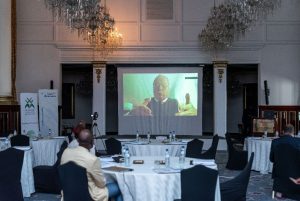 The event proceeded with the contributions from discussants Dr. Leonardo Simão, former Minister of Health, former Minister of Foreign Affairs and Executive Director of the Joaquim Chissano Foundation, and Dr António Souto, Senior Advisor, Gapi Sociedade de Investimentos SA. The final part consisted of a panel discussion and a session of questions and answers open to the audience. The members of the panel were Denise Malauene (UEM and former National Director of Higher Education, Ministry of Education), Dr. José Chichava (UEM and former Minister of State Administration) and Prof. Paulo Mole (UEM and Country Manager of AGRA in Mozambique), and the panel was moderated by senior researcher of the MID study, Professor Sam Jones. The event was then closed by Enilde Sarmento.
The event proceeded with the contributions from discussants Dr. Leonardo Simão, former Minister of Health, former Minister of Foreign Affairs and Executive Director of the Joaquim Chissano Foundation, and Dr António Souto, Senior Advisor, Gapi Sociedade de Investimentos SA. The final part consisted of a panel discussion and a session of questions and answers open to the audience. The members of the panel were Denise Malauene (UEM and former National Director of Higher Education, Ministry of Education), Dr. José Chichava (UEM and former Minister of State Administration) and Prof. Paulo Mole (UEM and Country Manager of AGRA in Mozambique), and the panel was moderated by senior researcher of the MID study, Professor Sam Jones. The event was then closed by Enilde Sarmento.
Overall, the feedback received during the event was very positive. To illustrate, Dr. António Souto highlighted the deep factual knowledge and experience of the local reality of the authors, and the pertinence of the selected themes, and Dr. Leonardo Simão agreed that the report will certainly contribute to better informed policy making about the choices of the path to follow. Prof. José Chichava underlined the richness of the information and analysis. The report was also well-received by the audience who expressed their appreciation for this important discussion and complemented the quality of the analysis.
Read the Mozambique Institutional Diagnostic here.
